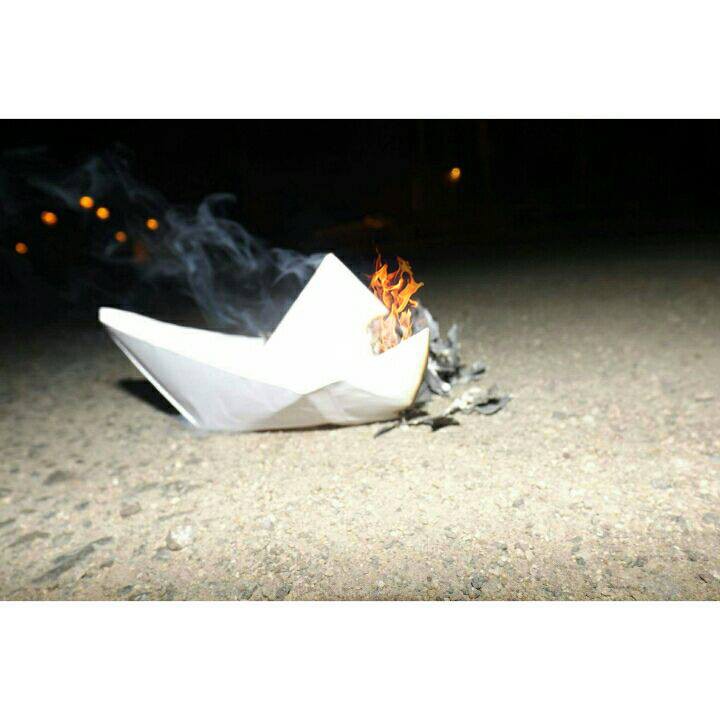When they open fairy tales with “Once upon a time”, they alert you that some great story is about to be told, with glitter and fantasy etched into it. But real life is sparkle-free. There aren’t any flying carriages that take people to magical places. There aren’t any witches that turn dust into gold. So, if we were to open this story, it would be in these words…
Once upon a real world, a fourteen-year-old fourth primary drop out sat with his pal-workers on a boring afternoon in the Assiut chicken farm where he works. One argument led to another, until they ended up talking about that guy who has helped dozens of people from their town flee the country; illegally.
“Somehow a person who overloads ships with desperation, growing need and broken dreams, only to throw them out to sea to meet their destiny, ended up being a savior!”
The thought of some people actually making it across the borders is all Youssef, the fourteen -year-old, could think about on his way home that day. Somehow a person who overloads ships with desperation, growing need and broken dreams, only to throw them out to sea to meet their destiny, ended up being a savior!
Confused as he is, Youssef decided to share his thoughts with his older brother, Medhat, but the response was completely discouraging. “You and I are all our father has in this world, the rest are girls. We can’t leave him. We can’t risk this” Youssef quotes his brother, explaining that this was enough to get the idea out of his mind.
As it turns out the older brother was shaking the idea from his younger brother’s mind, because he was saving it for himself. So a few months later, Medhat sat down with his younger brother to inform him that he was leaving, “One of us has to stay, our parents can’t lose us both” Medhat justifies.
And just like that he was gone, leaving Youssef behind to cover for him. “Medhat had agreed with the guy who arranged his immigration that he wouldn’t pay him a penny until he’d arrived to Italy and called us to ensure that he was okay” Youssef explains. The younger brother, whose ray of hope had just been snatched by his own sibling, had to lie to his mother about his brother’s disappearance. After calling his father and telling him, they agreed to keep it a secret until they knew for sure that Medhat was safe. Hesitantly, Youssef made up meaningless excuses about his brother having to travel to Cairo to get something for their mill, worried that his mother would die if she found out her boy was at sea.
After five whole days in sea, a ship packed up with 520 people eventually crossed the borders of Italy; only to be cornered by the Italian military until forced to surrender. “Sometimes they take the young ones, those they can send to school and teach a craft or so. But they always send the old ones back to their countries” says Youssef.
Medhat Shenoda was one of the lucky ones who had been taken; he was only 20 years old when they sent him to school. Before he started a new chapter in his life, there was one more call he had to make; one that had his mom’s shivering heart on the other end of the line. It took him a “Mom, I am in Italy and I am fine” for her to drop to her knees speechless, hospitalised for a week from shock. “We had to sell stuff, borrow money and do everything we could to pay the immigration guy the 50,000 L.E we owed him, hoping that someday my brother would make much more than that.”
“Later on, a guy from our home town, who had eloped years earlier but in exactly the same way, picked Medhat up. Now we are three years later, Medhat lives with that guy, he found a job at a bakery and has officially received his residency.” Youssef explains. “This was three years ago, but now things have changed, nearly even stopped. It’s very difficult now for someone to do something like that again, because even if he survived sea, he won’t survive the Italian forces. I hear they shoot the ships that cross the borders once they locate them”
And the story’s upcoming lines are yet to be written…
We wish there were a moral to this story. We wish we could tell you that Youssef wouldn’t jump into a one-way deportation opportunity. But we can’t, and he would.
This is not some triumph story about one guy who made it out of the thousands who drowned or had to be sent back home. This is not about the things they had to sell, give up, or mortgage to throw their bait at sea and wait for their fish. This is about life being dark; dark enough for death to seem like the brighter option in a long list of worst case scenarios.
They are all hungry for a moderate life, with basic needs taken care of, a house that won’t collapse any minute, a stable source of income, something to calm whatever keeps them up at night worried of what tomorrow might bring. Some of them resort to violence; they kill, they steal, they harm, they prioritize their life over insignificant others. And some others, whose lives are worthless enough, take some risks, to have everything or nothing.
Both violate the law in different ways. But if there were a moral to detect here, it would be the government’s inability to provide for its citizens a life they would want to cling to. A life that won’t leave them with choices like this, like taking a risk with bigger chances to die than to live.

